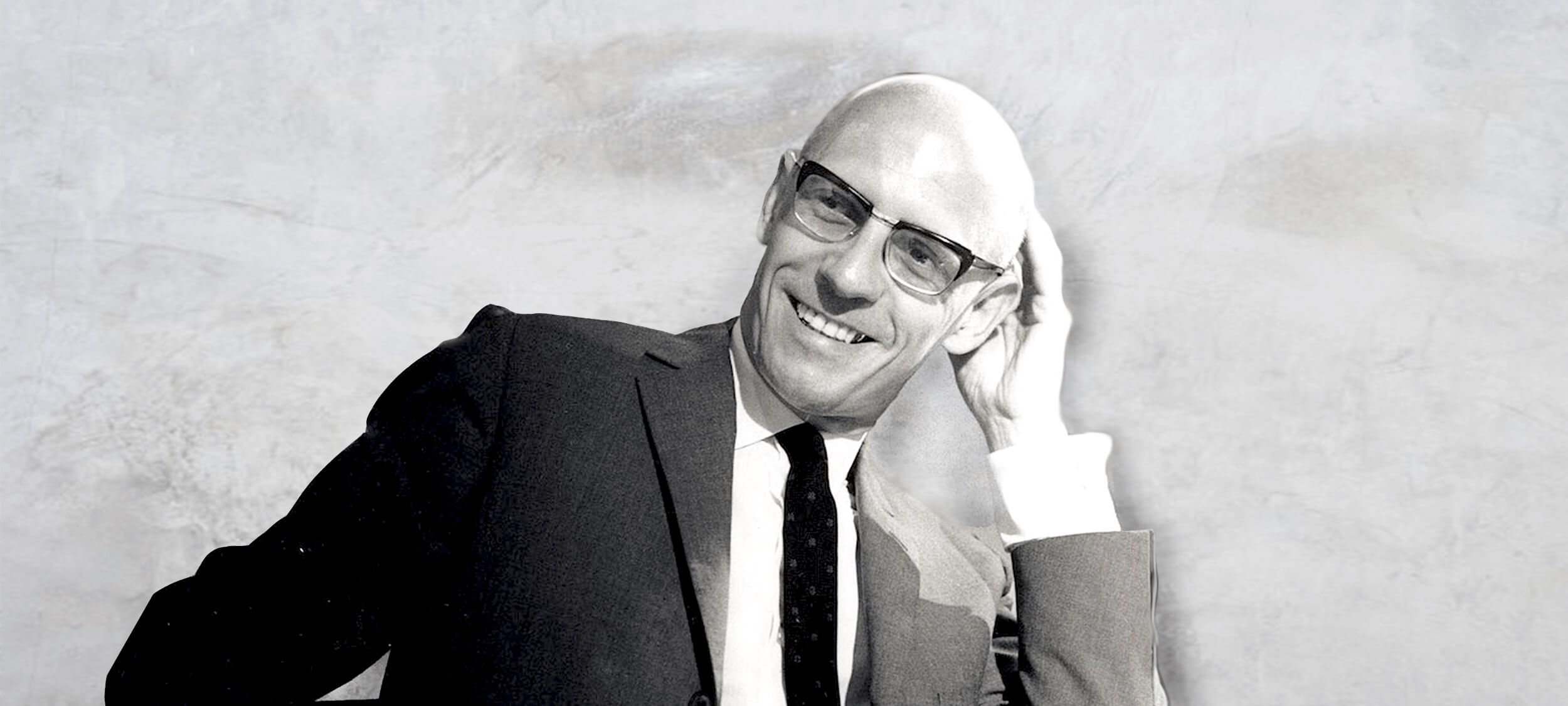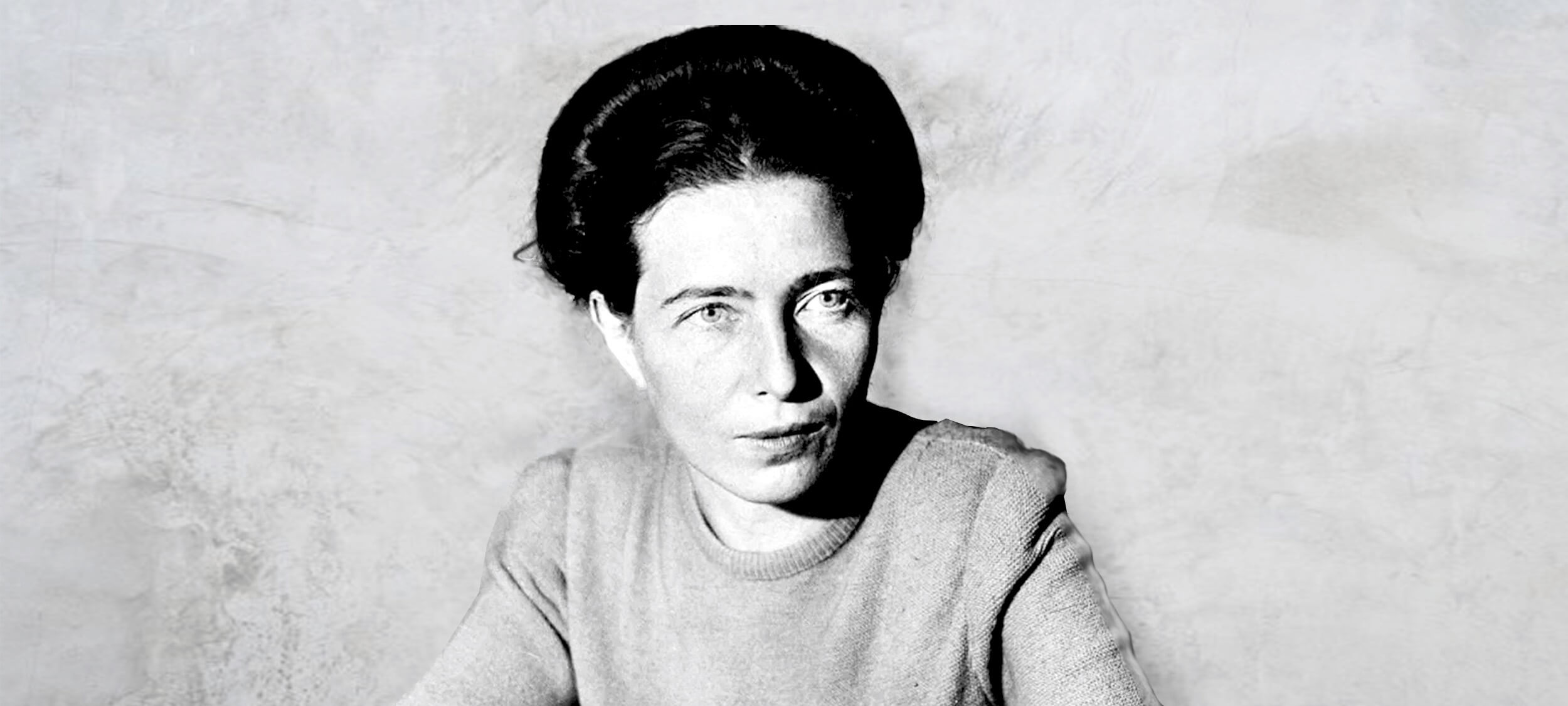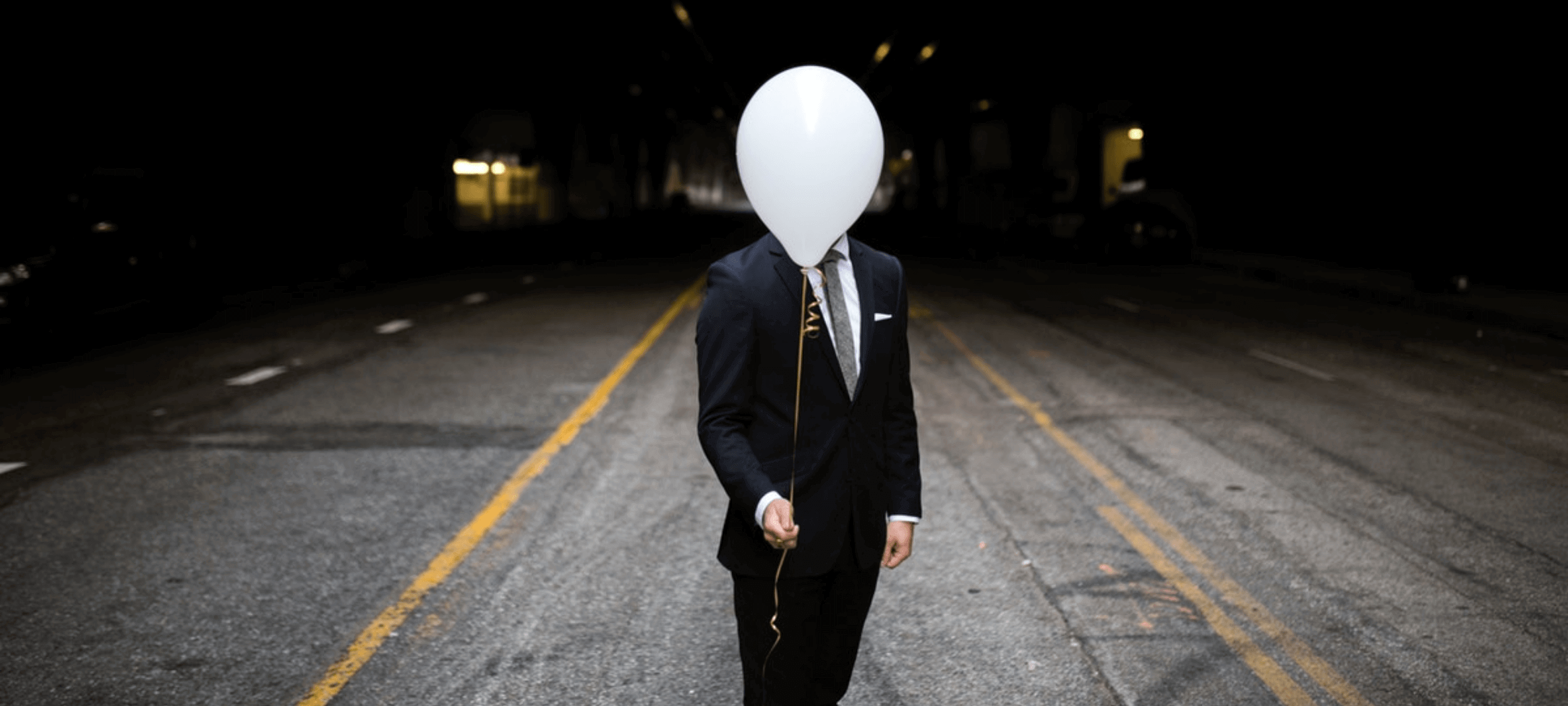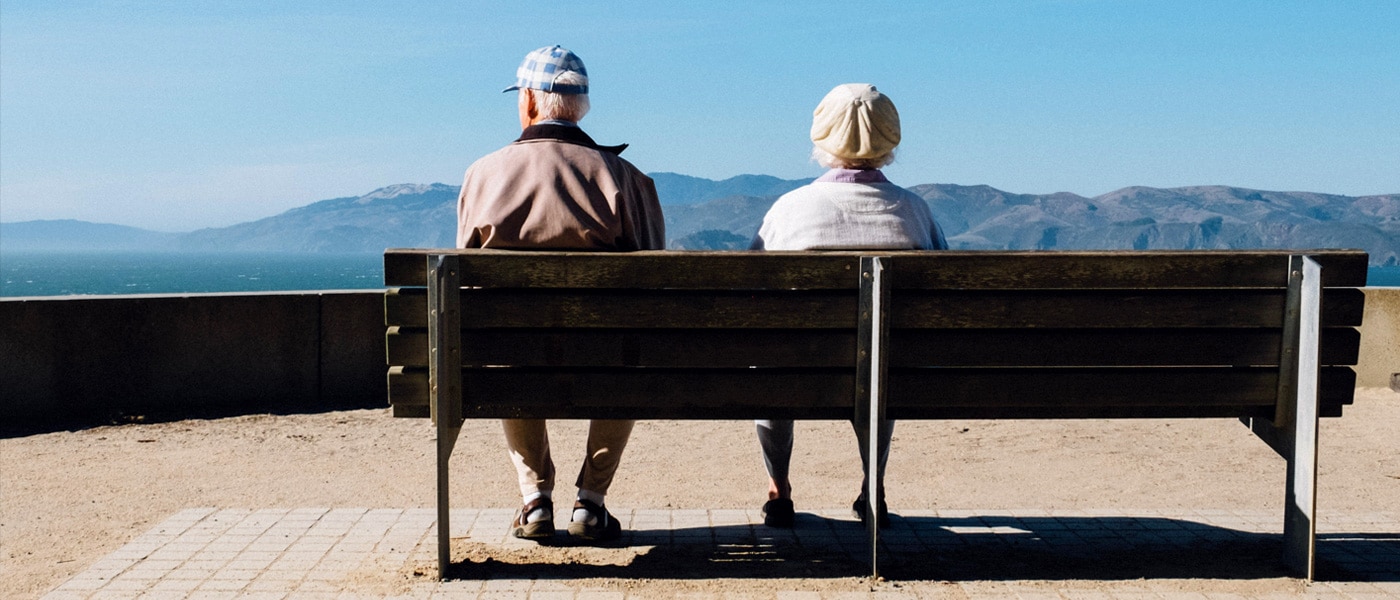Office flings and firings

Office flings and firings
Opinion + AnalysisBusiness + LeadershipHealth + WellbeingRelationships
BY Dennis Gentilin The Ethics Centre 20 JUL 2017
If you heard the phrase “cheaters never prosper” talked about at AFL headquarters, you’d assume they were talking about performance enhancing drugs, salary cap breaches or breaking the rules to win a game.
This week, as AFL CEO Gillon McLachlan announced the resignations of two senior officials, Richard Simkiss and Simon Lethlean, after they admitted to adulterous affairs with junior staff, the phrase took on a whole new meaning.
The reaction to McLachlan’s decision has been mixed. Some have applauded the move as a strong defence of the AFL’s culture and values. Others have suggested the AFL has gone too far. Writing in The Australian Financial Review, Josh Bornstein suggested office affairs that don’t involve “harassment or stalking or bullying” should “not be grounds for loss of employment”.
Particulars of the AFL case aside, this view is misguided. It conflates ethics and the law and demonstrates a lack of appreciation for the important role values and principles play in corporate governance. Just because something is legal doesn’t mean it’s ethical.
Yes, the law should play a role in guiding an organisation when developing an ethical framework. But it is far from sufficient. Arguably, the best test of an organisation’s ethics will arise when they’re operating in areas not covered by the law.
When a power imbalance could potentially cause harm to the more vulnerable party, then we have good reason to question that conduct.
With that said, what should we make of the AFL’s decision? When announcing the resignation of the two senior officials, McLachlan spoke to his organisation’s values. He stated that he would like to lead “a professional organisation based on integrity, respect, care for each other, and responsibility”.
An organisation’s values are affirmed by the actions, choices, and decisions that are made and condoned by its people, especially its most senior leaders. This also was not lost on McLachlan. “I expect that executives are role models and set a standard of behaviour for the rest of the organisation,” he said. “They are judged, as they should be, to a higher standard”.
The response by the Seven West Media board to revelations that their CEO Tim Worner had an adulterous affair with executive assistant Amber Harrison was a little more benign. They engaged a private law firm to undertake an independent investigation into a variety of allegations made by Harrison, including the inappropriate use of company funds and illicit drug use by Worner.
Although the findings of the investigation were not made public, the board concluded there was no evidence supporting the claims of wrongdoing by Worner. Furthermore, they stated he had been disciplined over his “personal and consensual” relationship with Harrison, which it also said was “inappropriate due to his senior position”.
So what are we to make of these seemingly contrasting responses? Should we cast judgement and declare that one organisation is more virtuous than the other?
We must be careful not to instantly assume that an individual who has become involved in an extra-marital affair is less committed to the organisation or its values. Infidelity is not a simple question of character deficiency.
It should be acknowledged that although the two organisations handled the incidents differently, neither condoned the conduct of the leaders involved. When judging the individuals and the organisation’s responses, commentators and the public appear to point to two factors.
The first is the power asymmetry between the people in each of the affairs. This is not unique. Power asymmetries in organisations are inescapable and almost all leaders have at some stage used their power to gain advantage, even if they did so unwittingly. However, when a power imbalance could potentially cause harm to the more vulnerable party then we have good reason to question that conduct.
The second factor inviting people’s judgement is the fact the affairs were adulterous. Understandably, infidelity arouses a range of moral responses. But we must be careful not to instantly assume that an individual who has become involved in an extra-marital affair is less committed to the organisation or its values. Infidelity is not a simple question of character deficiency.
Stories are powerful. After notable incidents like these, they become folklore within organisations.
Whenever a senior executive becomes involved in a regrettable or unsavoury incident similar to these, an employer has no choice but to respond. How they do so is a defining moment for the organisation. Their response (or lack thereof) reveals to us what the organisation really values and how committed it is to those values.
However, judging the appropriateness of the response is difficult. Perhaps the best measure is one we don’t yet have access. Namely, the stories that these events inspire within the organisation.
Stories are powerful. After notable incidents like these, they become folklore within organisations. If they affirm and are aligned to stated values and principles, they can strengthen the organisation’s ethical foundations. If not, people can quickly become cynical, compromising the organisation’s character.
When we look past the salacious gossip surrounding office romances, this is arguably the most important thing to take from these unfortunate incidents. For the sake of the boards at the AFL and Seven West Media, I hope that the stories being told within their organisations are reflective of the values they extol.
Ethics in your inbox.
Get the latest inspiration, intelligence, events & more.
By signing up you agree to our privacy policy
You might be interested in…
Explainer
Business + Leadership, Politics + Human Rights
Ethics Explainer: Universal Basic Income
Opinion + Analysis
Relationships
How to respectfully disagree
Explainer
Relationships
Ethics Explainer: Progressivism
Explainer
Health + Wellbeing, Relationships
Ethics Explainer: Values
BY Dennis Gentilin
Dennis Gentilin is an Adjunct Fellow at Macquarie University and currently works in Deloitte’s Risk Advisory practice.
BY The Ethics Centre
The Ethics Centre is a not-for-profit organisation developing innovative programs, services and experiences, designed to bring ethics to the centre of professional and personal life.
Big Thinker: Michel Foucault

Big Thinker: Michel Foucault
Big thinkerPolitics + Human RightsRelationships
BY The Ethics Centre 13 JUL 2017
Michel Foucault (1926—1984) was a French philosopher, historian and psychologist whose work explored the underlying power relationships in a range of our modern institutions.
Given Foucault’s focus on the ways institutions wield power over us, and that trust in institutions is catastrophically low around the world today, it’s worth having a look at some of the radical Frenchman’s key ideas.
History has no rhyme or reason
At the centre of Foucault’s ideas is the concept of genealogy – the word people usually use when they’re tracing their family history. Foucault thought all of history emerged in the same way a family does – with no sense of reason or purpose.
Just like your existence was the result of a bunch of random people meeting and procreating over generations, he thought our big ideas and social movements were the product of luck and circumstance. He argued what we do is both a product of the popular ways of thinking at the time (which he called rationalities) and the ways in which people talked about those ideas (which he called discourses).
Today Foucault might suggest the dominant rationalities were those of capitalism and technology. And the discourse we use to talk about them might be economics because we think about and debate things in terms their usefulness, efficiency and labour saving. Our judgements about what’s best are filtered through these concepts, which didn’t emerge because of any conscious historical design, but as random accidents.
You might not agree with Foucault. There are people who believe in moral progress and the notion our world is improving as time goes on. However, Foucault’s work still highlights the powerful sense in which certain ideas can become the flavour of the month and dominate the way we interpret the world around us.
For example, if capitalism is a dominant rationality, encouraging us to think of people as economic units of production rather than people in their own right, how might that impact the things we talk about? If Foucault is right, our conversations would probably centre on how to make life more efficient and how to manage the demands of labour with the other aspects of our life. When you consider the amount of time people spend looking for ‘life hacks’ and the ongoing discussion around work/life balance, it seems like he might have been on to something.
But Foucault goes further. It’s not just the things we talk about or the ways we talk about them. It’s the solutions we come up with. They will always reflect the dominant rationality of the time. Unless we’ve done the radical work of dismantling the old systems and changing our thinking, we’ll just get the same results in a different form.
Care is a kind of control
Although many of Foucault’s arguments were new to the philosophical world when he wrote them, they were also reactionary. His work on power was largely a response to the tendency for political philosophers to see power only as the relationship between the sovereign and the citizen – or state and individual. When you read the works of social contract theorists like Thomas Hobbes and Jean Jacques Rousseau, you get the sense politics consists only of people and the government.
Foucault challenged all this. He acknowledged lots of power can be traced back to the sovereign, but not all of it can.
For example, the rise of care experts in different fields like medicine, psychology and criminology creates a different source of power. Here, power doesn’t rest in an ability to control people through violence. It’s in their ability to take a person and examine them. In doing so, the person is objectified and turned into a case (we still read cases in psychiatric and medical journals now). This puts the patients under the power of experts who are masters of the popular medical and social discourses at the time.
What’s more, the expert collects information about the patient’s case. A psychiatrist might know what motivates a person’s behaviour, what their darkest sexual desires are, which medications they are taking and who they spend their personal time with. All of this information is collected in the interests of care but can easily become a tool for control.
A good example of the way non-state groups can be caring in a way that creates great power is in the debate around same sex marriage. Decades ago, LGBTI people were treated as cases because their sexual desires were medicalised and criminalised. This is less common now but experts still debate whether children suffer from being raised by same sex parents. Here, Foucault would likely see power being exercised under the guise of care – political liberties, sexuality and choice in marital spouse are controlled and limited as a way of giving children the best opportunities.
Prison power in inmate self-regulation
Foucault thought prisons were a really good example of the role of care in exercising power and how discourses can shape people’s thinking. They also reveal some other unique things about the nature of power in general and prisons more specifically.
In Discipline and Punish: The Birth of the Prison, Foucault observed a monumental shift in how society dealt with crime. Over a few decades, punishments went from being public, violent spectacles like beheadings, hangings and mutilations to private, clinical and sterile exercises with the prison at the centre of it all. For Foucault, the move represented a shift in discourse. Capital punishment and torture were out, discipline and self-regulation were in.
He saw the new prison, where the inmates are tightly managed and regulated by timetables – meal time, leisure time, work time, lights out time – as being a different form of control. People weren’t in fear of being butchered in the town square anymore. The prison aimed to control behaviour through constant observation. Prisoners who were always watched, regulated their own behaviour.
This model of the prison is best reflected in Jeremy Bentham’s concept of the panopticon. The panopticon was a prison where every cell is visible from a central tower occupied by an unseen guard. The cells are divided by walls so the prisoners can’t engage with each other but they are totally visible from the tower at all times. Bentham thought – and Foucault agreed – that even though the prisoners wouldn’t know if they were being watched at any moment, knowing they could be seen would be enough to control their behaviour. Prisoners were always visible while guards were always unseen.
Foucault believed the panopticon could be recreated as a factory, school, hospital or society. Knowing we’re being watched motivates us to conform our behaviours to what is expected. We don’t want to be caught, judged or punished. The more frequently we are observed, the more likely we are to regulate ourselves. The system intensifies as time goes on.
Exactly what ‘normality’ means will vary depending on the dominant discourse of the time but it will always endeavour to reform prisoners so they are useful to society and to the powerful. That’s why, Foucault argued, prisoners are often forced to do labour. It’s a way of taking something society sees as useless and making it useful.
Even when they’re motivated by care – for example, by the belief that work is good for prisoners and helps them reform – the prison system serves the interests of the powerful in Foucault’s eyes. It will always reflect their needs and play a role in enforcing their vision of how society should be.
You needn’t accept all of Foucault’s views on prisons to see a few useful points in his argument. First, prisons haven’t been around forever. There are other ways of dealing with crime we could use but choose not to. Why do we think prisons are the best? What are the beliefs driving that judgement?
Ethics in your inbox.
Get the latest inspiration, intelligence, events & more.
By signing up you agree to our privacy policy
You might be interested in…
Explainer
Health + Wellbeing, Relationships
Ethics Explainer: Tolerance
Opinion + Analysis
Health + Wellbeing, Relationships
Is it ok to visit someone in need during COVID-19?
Opinion + Analysis
Relationships
What is the definition of Free Will ethics?
Opinion + Analysis
Climate + Environment, Politics + Human Rights
Are we idolising youth? Recommended reads
BY The Ethics Centre
The Ethics Centre is a not-for-profit organisation developing innovative programs, services and experiences, designed to bring ethics to the centre of professional and personal life.
Ethical dilemma: how important is the truth?

Ethical dilemma: how important is the truth?
Opinion + AnalysisRelationships
BY Matthew Beard The Ethics Centre 16 JUN 2017
Someone I know has just told me that the wife of a very good friend had an affair a few years ago.
The thing is that they seem very happy together, as do their children, and they are a solid family unit. The source of information is good, in that I can trust the person telling me, but he heard from someone else rather than ‘knowing’ for himself. What to do now that I have this information? Do I follow the lead to the original source to find out if it’s true? Do I confront my friend’s wife? Tell my friend? Forget about it altogether? If it isn’t true, I risk looking like an idiot; if it is, I risk breaking up a marriage and family. How important is the truth?
It’s tempting to say “this is none of your business – this is a matter for the person who had the affair to own up to”, but I’m not convinced by that. By saying nothing, you’re still making a decision to withhold potentially life-changing information from someone.
Let’s say that if your friend knew of the affair, they’d leave their wife, decide to stop sleeping with them or whatever. By withholding that information, you’re preventing them from making a choice they would otherwise make, which they have the right to make and which might be in their best interests. That’s a serious responsibility to take on, so you’d need to have pretty good reasons to justify saying nothing.
One such reason might be uncertainty. You say you’ve had this information given to you by a trustworthy source, but your source got that information as gossip. So, the question isn’t ‘can I trust my source?’; it’s ‘can I trust gossip?’
Your source might have good reasons to trust that gossip – you should ask what they are. If there aren’t any special circumstances, it’s hard to see on what basis you’d believe the allegations.
Now you’re wondering whether you need to investigate further. You’ve been told something but it’s an unreliable source – should you go out and find a more reliable source to make a decision one way or the other?
If you do decide to pursue the source further, it’s important you recognise exactly what that means. You’ve been told something is true, realised the source is unreliable and then decided it’s your job to try to find another source that proves it to be true. That’s not an impartial way to make the decision.
Most people would think if you only have one source of evidence for a claim and that evidence is bad, then you no longer have any reason to believe the claim. To keep looking for new evidence to prove the claim true is what psychologists call ‘confirmation bias’.
Still, if you have a close enough relationship to your friend you might be willing to fly in the face of reason and leave no stone unturned. But it would be wrong to say you’re obliged to investigate further: there’s just not enough evidence for that.
This article originally appeared in New Philosopher issue #17 on Communication.
Ethics in your inbox.
Get the latest inspiration, intelligence, events & more.
By signing up you agree to our privacy policy
You might be interested in…
Opinion + Analysis
Relationships
In two minds: Why we need to embrace the good and bad in everything
Opinion + Analysis
Relationships
Ask an ethicist: How much should politics influence my dating decisions?
Opinion + Analysis
Politics + Human Rights, Relationships
Intimate relationships matter: The need for a fairer family migration system in Australia
Opinion + Analysis
Health + Wellbeing, Relationships
Ageing well is the elephant in the room when it comes to aged care
BY Matthew Beard
Matt is a moral philosopher with a background in applied and military ethics. In 2016, Matt won the Australasian Association of Philosophy prize for media engagement. Formerly a fellow at The Ethics Centre, Matt is currently host on ABC’s Short & Curly podcast and the Vincent Fairfax Fellowship Program Director.
BY The Ethics Centre
The Ethics Centre is a not-for-profit organisation developing innovative programs, services and experiences, designed to bring ethics to the centre of professional and personal life.
Big Thinker: Simone de Beauvoir

Big Thinker: Simone de Beauvoir
Big thinkerRelationshipsSociety + Culture
BY The Ethics Centre 18 MAY 2017
Simone de Beauvoir (1908—1986) was a French author, feminist and existential philosopher. Her unconventional life was a working experiment of her ideas – that one creates the meaning of life through free and authentic choices.
In a cruel confirmation of the sexism she criticised, Beauvoir’s work is often seen as less important than that of her partner, Jean Paul Sartre. Given the conclusions she drew were hugely influential, let’s revisit her ideas for a refresher course.
Women aren’t born, they’re made
Beauvoir’s most famous quote comes from her best-known work, The Second Sex: “One is not born, but rather becomes, a woman”.
By this she means there is no essential definition of womanhood. Women can be anything, but social norms work hard to fit them into a particular kind of femininity. These social norms are patriarchal and born out of the male gaze.
The Second Sex argues that it’s men who define what women should be. Because men have always held more power in society, the world looks the way men want it to look. An obvious example is female beauty.
Beauvoir holds that through norms around removing body hair, makeup and uncomfortable fashion, women restrict their freedom to serve the male gaze.
This objectification of women goes deeper, until they aren’t seen as fully human. Men are seen as active, free agents who are in control of their lives. Women are described passively. They need to be protected, controlled or rescued.
It’s true, she thinks, that women aren’t always seen as passive objects, but this only happens when they impersonate men.
“Man is defined as a human being and woman as a female – whenever she behaves as a human being she is said to imitate the male.”
For Beauvoir, women are always cast into the role of the Other. Who they are matters less than who they’re not: men. This is an enormous problem for the existentialist, for whom the purpose of life is to freely choose who they want to be.
Everyone has to create themselves
As an existentialist, Beauvoir believed people need to live authentically. They need to choose for themselves who they want to be and how they want to live. The more pressure society – and other people – place on you, the harder it is to make an authentic choice.
Existentialists believe no matter the amount of external pressure, it is still possible to make a free choice about who we want to be. They say we can never lose our freedom, though a range of forces can make it harder to exercise. Plus, some people choose to hide from their freedom in various ways.
Some of us hide from our freedom by living in bad faith, embracing the definitions other people put on us. Men are free to reject the male gaze and stop imposing their desires onto women but many don’t. It’s easier, Beauvoir thinks, to accept the social norms we’re born into. To live freely and authentically is the greater struggle.
The importance of freedom led Beauvoir to suggest liberated women should not try to force other women to live their lives in a similar way. If a small group of women choose to reject the male gaze and define womanhood in their own way, that’s great.
But respecting other people means allowing them to live freely. If other women don’t want to join the feminist mission, Beauvoir believed they should not be forced or pressured to do so. This is important advice in an age where online shaming is often used to force people to conform to popular social views.
We’re as ageist as we are sexist
Later in life, Beauvoir applied her arguments about women in The Second Sex to the plight of the elderly. In The Coming of Age, she argued that we make assumptions and generalisations about the elderly and ageing, just like we do about women.
To her, it is as wrong to ‘other’ women because they are different from men, as it is to ‘other’ the elderly because they are different from the young. Feminist philosopher Deborah Bergoffen explains Beauvoir’s view: “As we age, the body is transformed from an instrument that engages the world into a hindrance that makes our access to the world difficult”.
Like women in The Second Sex, the elderly remain free to define themselves. They can reject the idea that physical decline makes them unable to function as authentic human beings.
In The Coming of Age, we see some of the foundations of today’s discussions about ageism and ableism. Beauvoir urges us to come back to a simple truth: the facts of our existence – what our bodies are like, for example – don’t have to define us.
More importantly, it’s wrong to define other people only by the facts of their existence.
Ethics in your inbox.
Get the latest inspiration, intelligence, events & more.
By signing up you agree to our privacy policy
You might be interested in…
Explainer
Politics + Human Rights, Relationships
Ethics Explainer: Critical Race Theory
Explainer
Relationships
Ethics Explainer: Respect
Opinion + Analysis
Relationships, Science + Technology
With great power comes great responsibility – but will tech companies accept it?
Opinion + Analysis
Relationships, Society + Culture
Yellowjackets and the way we hunger
BY The Ethics Centre
The Ethics Centre is a not-for-profit organisation developing innovative programs, services and experiences, designed to bring ethics to the centre of professional and personal life.
Ethics Explainer: Vulnerability

In philosophy, vulnerability describes the ways in which people are less self-sufficient than they think.
It explains how factors beyond our control – like other people, events, and circumstances – can impact our ability to live our best lives. The implications of vulnerability for ethics are considerable and wide reaching.
Vulnerability isn’t a new idea. The ancient Greeks recognised tuche – luck – as a goddess with considerable power. Their plays often show how a person’s circumstances alter on the whim of the gods or a random twist of luck (or, if you like, a twist of fate).
This might seem obvious to many people. Of course, external events can affect our lives. If an air conditioning unit falls out of an apartment and lands on my head tomorrow, it’s going to change my circumstances pretty dramatically. But this isn’t the kind of luck philosophers argue is relevant to ethics.
A question of character
The Stoics, a group of ancient Greek philosophers (who are experiencing a revival today) thought only our own choices could affect our character or wellbeing. If I lose my job, my happiness is only affected if I choose to react to my new circumstances badly. The Stoics thought we could control our reactions and overcome our emotions.
The Stoics, much like Buddhist philosophy, thought our main problem was one of attachment. The more attached to external things – jobs, wealth, even loved ones – the more we risk suffering if we lose those things. Instead, they recommended we only be concerned with what we can control – our own personal virtue. For Stoics, we aren’t vulnerable because the only thing that matters can’t be taken away from us: our virtue.
Enlightenment philosopher Immanuel Kant had similar thoughts. He believed the only thing that mattered for ethics was that we act with good will. Whatever happened to us or around us, so long as we act with the intention of fulfilling our duties, we’d be in the clear, ethically speaking. It’s our rational nature – our ability to think – that defines us ethically. And thinking is completely within our control.
Both Kant and the Stoics believed the ethical life was invulnerable. External circumstances, like luck or other people, couldn’t affect our ability to make good or bad choices. As a result, whether or not we are ethical is up to us.
Can one ever be self-sufficient?
This idea of self-sufficiency has faced challenges more recently. Many philosophers simply don’t think it’s possible to be self-sufficient to the degree that the Stoics and Kant believed. But some go further – seeing a measure of virtue in vulnerability. For example, vulnerability has become a popular term among psychologists and self-help gurus like Brené Brown. They argue vulnerability, dependency, and luck make up important parts of who we are.
Several thinkers, such as Bernard Williams, Thomas Nagel, and Martha Nussbaum have criticised the idea of self-sufficiency. Scottish philosopher Alasdair MacIntyre, for example, argues that dependency is in our nature.
We’re all born completely dependent on other people and will reach a similar level of dependency if we live long enough. In the meantime, we’ll be somewhat independent but will still rely on other people for help, for community, and to give meaning to our lives.
MacIntyre thinks this is true even if Kant is right and rational adults are invulnerable to luck (at least in terms of choosing to do their duty). However, against Kant, MacIntyre argues that our capacity for rationality is honed by education and the quality of our education is often beyond our control… as we are dependent on the judgement and circumstances of our parents, society, and so on. Thus, we remain vulnerable in important ways.
Mutual vulnerability
Dr Simon Longstaff, the CEO of The Ethics Centre, has made a different argument in favour of vulnerability. He argues, after Thomas Hobbes, that the reality of mutual vulnerability lies at the heart of how and why we form social bonds. As a result, he argues those who seek to eliminate all forms of vulnerability risk creating a world in which the ‘invulnerable’ show no restraint in their treatment of the vulnerable.
All of this might seem like another academic debate but our understanding of vulnerability has significant consequences for the way we judge ourselves and others. If vulnerability matters, we’re less likely to judge people based on their circumstances. We won’t expect the poor always to lift themselves out of poverty (because unlucky circumstances may deny them the means to do so) nor assume every person struggling with an addiction is necessarily morally deficient. They may simply be stuck with the outcome of events that were (at least initially) beyond their control.
We may also be a little less self-congratulatory. Recognising the ways bad luck can affect people means also seeing how we’ve benefitted from good luck. Rather than assuming all our fortune is the product of hard work and personal virtue, we might be moved by vulnerability to acknowledge how factors beyond our control have worked in our favour.
Finally, vulnerability is one of the concepts that underpins modern debates about privilege and identity politics. If we think people are self-sufficient, we’re less likely to think past injustices have any effect on their present lives. However, if we think factors beyond our control can affect not just our lives but also our character and wellbeing, we might see the claims of minorities in a more open light.
There is a final sense in which vulnerability might be important to ethics. The ‘invulnerable’ person may come to believe their judgement is perfectly formed. They might become ‘immune to doubt’. If people open themselves to the possibility they might be wrong, they live an ‘examined life’ – that is, an ethical life.
Ethics in your inbox.
Get the latest inspiration, intelligence, events & more.
By signing up you agree to our privacy policy
You might be interested in…
Opinion + Analysis
Relationships
Three ways philosophy can help you decide what to do
Explainer
Relationships
Ethics Explainer: Moral Absolutism
Opinion + Analysis
Health + Wellbeing, Relationships
Male suicide is a global health issue in need of understanding
Opinion + Analysis
Relationships
What we owe our friends
BY The Ethics Centre
The Ethics Centre is a not-for-profit organisation developing innovative programs, services and experiences, designed to bring ethics to the centre of professional and personal life.
What Harry Potter teaches you about ethics

What Harry Potter teaches you about ethics
Opinion + AnalysisRelationshipsSociety + Culture
BY The Ethics Centre 8 MAY 2017
If you’ve read the Harry Potter series – and let’s face it, many of us have – you will have gained insight into a number of things: the value of friendship, the nature of heroism, the redeeming power of love… the list goes on.
But amidst all the magic, there’s one lesson you might have missed – a lesson which is crucial to the way we think and talk about ethics. In Harry Potter and the Philosopher’s Stone, Harry is able to secure the titular stone and keep it away from the villainous Voldemort for one simple reason. Even though the stone is powerful, Harry has no desire to use it.
Genius wizard Dumbledore protects the stone with an enchantment. Any person who wanted to use the stone to become immortal would never be able to access it. Only someone who wanted the stone for the right reasons would be successful. The benefits, in other words, were only available to people who didn’t want them.
If your only reasons for committing to ethics are external – because of what ethics will give you – then your motivation will come and go.
Working in ethics, it’s tempting to present the external benefits the ethical life provides to people. In convincing people to set aside self interest and do what’s right, we sometimes appeal to people’s self interest. We use the very logic we’re trying to unwind.
For example, we convince a business to take ethics seriously because it’ll enable them to recruit and keep better staff (it does). We tell a person that living ethically is more likely to make them popular, employable and happy, which it might.
The problem is, if we’re serious about getting people to live ethically, even if we win the argument, we’ve failed in achieving our goal. As soon as someone commits to acting ethically for instrumental reasons – to make money, become popular or whatever – they’re no longer doing it because they think it’s right, they’re doing it because they think it’s effective.
This is a problem. If your only reasons for committing to ethics are external – because of what ethics will give you – then your motivation will come and go. The moment ethics doesn’t help you keep staff or stay popular, your reasons for committing to living an ethical disappear.
Genuine ethical behaviour isn’t only about doing the right thing, it’s about doing it for the right reasons. It means doing what’s ethical because it’s ethical, not because it’ll give us some other advantages.
The debates around torture are a good example of this. Recently, many opponents to torture have argued ‘torture doesn’t work’, so we shouldn’t do it. But this suggests that if torture did work, we wouldn’t have any problem with it. The logic of the argument supports abandoning torture but it also supports undertaking further research to find forms of torture that do work.
But the ethical argument against torture isn’t that it doesn’t work, it’s that even if it did work, it would be wrong. In whatever walk of life you apply it, ethical demands are at their strongest when they force you to choose between what’s beneficial and what’s right.
When someone starts to use the language of ethics to pursue their own ends, they often reveal themselves through hypocrisy. Often, they abandon their so-called values when the costs get too high.
It’s easy to do the right thing when it benefits you. Ethics asks you to set aside what’s convenient, profitable or comfortable and do what’s right. Genuine ethical behaviour isn’t only about doing the right thing, it’s about doing it for the right reasons. It means doing what’s ethical because it’s ethical, not because it’ll give us some other advantages.
In short, ethics is a totally different language to that of self interest, efficiency or effectiveness. It uses different arguments, demands a different kind of thinking and asks us to reconsider our priorities.
It’s only those who are authentically committed to ethics for its own sake who inspire support and trust in the long term.
The reason this is tricky for ethicists is because ethics is a Philosopher’s Stone of sorts. It does offer lots of benefits. But like the enchanted stone in Harry Potter, these benefits are only available to the people for whom ethics isn’t about achieving them.
People value authenticity and loathe hypocrisy. When someone starts to use the language of ethics to pursue their own ends, they often reveal themselves through hypocrisy. Often they abandon their so called values when the costs get too high. When this happens, the good will and support offered by others will disappear.
It’s only those who are authentically committed to ethics for its own sake who inspire support and trust in the long term. Like the magic stone, the benefits of ethics don’t come to those who seek them, they are given to those who deserve them.
Ethics in your inbox.
Get the latest inspiration, intelligence, events & more.
By signing up you agree to our privacy policy
You might be interested in…
Opinion + Analysis
Society + Culture
Read before you think: 10 dangerous books for FODI22
Opinion + Analysis
Society + Culture
Sex ed: 12 books, shows and podcasts to strengthen your sexual ethics
Opinion + Analysis
Relationships, Society + Culture
Joker broke the key rule of comic book movies: it made the audience think
Opinion + Analysis
Health + Wellbeing, Relationships
Rationing life: COVID-19 triage and end of life care
BY The Ethics Centre
The Ethics Centre is a not-for-profit organisation developing innovative programs, services and experiences, designed to bring ethics to the centre of professional and personal life.
Big Thinker: Kwame Anthony Appiah

Big Thinker: Kwame Anthony Appiah
Opinion + AnalysisRelationshipsSociety + Culture
BY The Ethics Centre 2 MAY 2017
Kwame Anthony Appiah (1954-current) is a British born, American-Ghanaian philosopher.
He is best known for his work on cosmopolitanism, a philosophy that holds all human beings as members of a single, global community. A professor of philosophy and law at New York University, he also writes the popular everyday advice column ‘The Ethicist’ in the New York Times.
We’re responsible for every human being
Because Appiah is a cosmopolitan (meaning “citizen of the world”), he believes we have just as much moral responsibility to our neighbours as we do those halfway across the world. Our obligations to other people transcend national borders, the same way they bypass political ideas and religious beliefs.
However, these obligations shouldn’t mean treating yourself unjustly. Appiah doesn’t advocate for giving everything away so you are worse off than the people you are trying to help.
By focussing too much on eliminating everything bad from the world, Appiah worries we’d fulfil our duties to others at the expense of our duties to ourselves. We’d let go of everything that makes life worth living and meaningful.
He also thinks we’re more productive when we work together. He sees our duties to others as collective rather than individual. The best way to help other people is to unite and ensure nations can provide citizens with what they need to live a good life. This means working with international aid organisations and governments. We’re all in this together.
What unites us is stronger than what divides us
For Appiah, the other basic principle of cosmopolitanism is valuing people’s differences.
“Because there are so many human possibilities worth exploring, we neither expect nor demand that every person or every society should converge on a single mode of life.”
It’s not enough to campaign for international human rights for everyone. These matter, but we should also care about the specific things that give people’s lives meaning – culture, religion, art and so on.
Besides, underneath cultural differences are often shared values and practices. Whether it’s art, friendship, norms of respect or a belief in good and evil, the things that seem so different are often based in ideas we all share.
Moral progress isn’t made by argument
In The Honor Code: How Moral Revolutions Happen Appiah argues that seriously unjust practices aren’t defeated by new moral arguments. Instead, they’re defeated by changing attitudes about what’s honourable or shameful.
Appiah points to the overthrow of slavery in Britain and the US as being largely a product of honour. Even though slave owners and traders were aware of moral arguments defending the humanity of their so called stock, that didn’t provide the impetus to change. What really overthrew it was public criticism. The appeal to honour had far more influence than any moral and philosophical ideals.
We can see honour as the middle ground between narrow self interest and self sacrificing altruism. Appiah’s point is a powerful one for people wanting to make change in the world. It would be great if everyone did the right thing for its own sake but sometimes we need a push. Honour, praise and shame can be just the thing.
It’s important to note Appiah thinks honour and ethics are separate. What is seen as honourable isn’t always the same as what’s right. Killing someone in defence of your honour is one clear example.
What’s more, as anyone who has ever logged onto Twitter knows, praise and shame can be abused. Because they are so effective at changing people’s behaviour, it’s tempting to use them when it’s entirely inappropriate. And sometimes this has disastrous effects.
The deeper point is we aren’t purely rational creatures. We work on emotion and our thoughts and actions are driven by cultural attitudes and judgements.
Being aware of this means we might be able harness our communal nature as a force for good and speak both to people’s heads and hearts.
Ethics in your inbox.
Get the latest inspiration, intelligence, events & more.
By signing up you agree to our privacy policy
You might be interested in…
Opinion + Analysis
Business + Leadership, Relationships
How the Canva crew learned to love feedback
Opinion + Analysis
Society + Culture
Feeling our way through tragedy
Opinion + Analysis
Science + Technology, Society + Culture
That’s not me: How deepfakes threaten our autonomy
Opinion + Analysis
Relationships
We need to talk about ageism
BY The Ethics Centre
The Ethics Centre is a not-for-profit organisation developing innovative programs, services and experiences, designed to bring ethics to the centre of professional and personal life.
Putting the ‘identity’ into identity politics

Putting the ‘identity’ into identity politics
Opinion + AnalysisRelationships
BY Pat Stokes The Ethics Centre 26 APR 2017
‘Identity politics’, much like ‘political correctness’, is being battered in the public square.
Rather than becoming a serious category of political critique, its obscurity of meaning makes it a useful tool for opposing political ideologies. It is used as a pejorative for the political left and, at the same time, as a euphemism for white supremacy (‘white identity’). Now, even notionally left-leaning figures have started railing against identity politics, calling it divisive.
The hackneyed left/right distinction will not help us to understand the debate over identity politics. Indeed, this conflict may well reflect and reveal deep, structural features of what it is to be a human.
What is identity politics?
Identity politics seeks to give political weight to the ways in which particular groups are marginalised by the structures of society. To be a woman, a person of colour, transgender or Indigenous is to be born into a set of social meanings and power relations that constrain what sort of life is possible for you.
Your experience of the world will be conditioned in very different ways from those on the other side of social power. Identity politics, at its simplest, is an attempt to expose and respond politically to this reality.
Importantly, identity politics has always been a reaction to liberalism, although both frameworks have the same end goals of equality and ending oppression. A liberal approach to social justice sees the demand for political equality as emanating from a shared human dignity. As such, it de-emphasises difference. If only we look past the superficial things that divide us, we’re told, we see a common humanity. It washes away any justifications for discrimination on the basis of race, gender or orientation.
But liberalism can tend to mask the circumstances that make us need liberating in the first place. By focusing on universalism – the ways in which you and I are the same – I may well become more aware of our shared human equality and less sensitive to how different our lived experiences may be. So the forms of privilege I enjoy and you lack remain invisible to me.
Liberalism at its most strident treats every person as a sort of abstract locus of radical freedom and rationality. Identity politics resists that abstraction – an abstraction which, as identity politics points out, implicitly serves those on the privileged end of power imbalances. In doing so, liberalism makes it harder for us to see and dismantle the structures that perpetuate inequality.
The real gulf here isn’t between left and right or between minority and majority, it’s between two conceptions of how human beings stand in relation to their historical and cultural background. Are we defined by our place within society or do we somehow transcend it?
The philosophy of identity
“What are we?” should be the simplest question to answer, yet it is one of the most annoyingly intractable problems in philosophy. Are we minded animals or embodied minds? Are we souls? Bodies? Brains? Particular bits of brains? All of these answers have been tried, and all answer some of our everyday assumptions about personal identity while running afoul of others.
What they all have in common is they treat selves or persons as a type of object. They all regard the person from a third-person perspective. That’s the perspective we take on other people all the time, both in our everyday interactions and in trying to influence human behaviour via psychology, medicine, marketing, politics and so on. And we can take a third-person perspective on ourselves, too. Whenever you ask, “Why did I act like that?” you’re viewing yourself as an object and wondering what forces made you act one way instead of another.
Yet in your self-reflection you never, to borrow a phrase from Jean-Paul Sartre, ‘coincide’ with yourself. You view yourself as an object. Just by doing that you go beyond yourself, make yourself something different to the self you’re contemplating. Just as the eye can never catch sight of itself (but only, at best, a reflection of itself), you can only see yourself by being something more than yourself, so to speak.
You detach from all that you are – your history, your memory, your character – in order to observe yourself. That ability to detach is precisely what makes reflective endorsement or rejection of your concrete identity possible at all.
So which one are we? The observer or the observed? The object we contemplate in a field of other objects and forces – a mass of psychological drives subject to cause and effect – or the conscious subject that somehow detaches from all that? The answer has to be ‘both’. We are pretty clearly physical objects, prone to various forms of constraint, influence and control.
Yet we cannot simply disavow our past, our language or the identities society imposes on us either. But we are also something more, something that can step back from what we are, something that appears to itself as free. We’re doomed to be both these things. Our destiny is internal division.
Making sense of the identity politics debate
How does any of this relate to the issue of identity politics? Well, consider the two political anthropologies sketched above – one view says we’re constrained by the identities we find ourselves born or built into, the other that we’re all free, rational, autonomous agents.
These are exaggerations of course – most liberals don’t think we’re completely unaffected by our social situation and most proponents of identity politics don’t think we’re completely lacking in autonomy. But they pick out a genuine point of disagreement.
Both identity politics and universalism answer different but real dimensions of human existence.
One way to think of that disagreement is as a clash between the type of self we might take ourselves to be – as an object determined by history and society, or as a free, undetached locus of consciousness. That is not the whole story, but it opens up one useful way to think about it. Both identity politics and universalism answer to different but real dimensions of human existence.
Rather than simply insisting on one approach to the complete exclusion of the other, we should consider how both might be responses to irreducible and contradictory aspects of what we are.
The question is where we go from there.
Ethics in your inbox.
Get the latest inspiration, intelligence, events & more.
By signing up you agree to our privacy policy
You might be interested in…
Opinion + Analysis
Business + Leadership, Health + Wellbeing, Relationships
Ending workplace bullying demands courage
Explainer
Relationships
Ethics Explainer: Hope
Opinion + Analysis
Health + Wellbeing, Relationships
Women must uphold the right to defy their doctor’s orders
Opinion + Analysis
Health + Wellbeing, Politics + Human Rights, Relationships
Ethics in a time of coronavirus
BY Pat Stokes
Dr Patrick Stokes is a senior lecturer in Philosophy at Deakin University. Follow him on Twitter – @patstokes.
BY The Ethics Centre
The Ethics Centre is a not-for-profit organisation developing innovative programs, services and experiences, designed to bring ethics to the centre of professional and personal life.
Easter and the humility revolution

Easter and the humility revolution
Opinion + AnalysisHealth + WellbeingRelationships
BY Natasha Moore The Ethics Centre 13 APR 2017
Whether you’re sceptical there’s a man upstairs, are a lapsed Christian, or have another faith, you’re likely to be celebrating Easter. You might swap church for chocolate and paid leave, but it’s a celebration nonetheless.
For people who believe Jesus is the Son of God, the next few days mark the most important time of the year. From Holy Thursday to Easter Sunday, Christians will reflect on the death and resurrection of Christ.
It’s a story that “transformed the world we live in” according to Natasha Moore, research fellow at the Centre for Public Christianity. Moore says some of the character traits we value so highly today have their origins in what is said to have happened in those few days in Jerusalem. She takes us through the significance of Easter.
Humility: “Your Lord and teacher has washed your feet”
“The big one is humility”, Moore explains. “The fact that we today value humility and we think about leadership as service to those under your power – we trace that back entirely to Jesus.”
This all stems from the central message of Easter and of Christianity itself: God became a man and allowed himself to be killed to redeem humanity.
This was revolutionary when you compare it to the prevailing ideas about power and leadership at the time.
We have to think differently about hierarchy, privilege, power, service, leadership, and all those things.
Before Christianity, there was no real sense that humility was a virtue. Although the Ancient Greeks had a sense of hubris – excessive pride that would be punished by the gods – there was still a firm emphasis on achievement, power and status as the ways to determine someone’s moral worth.
“In the ancient world, humility was indistinguishable from humiliation … It would be horrifying that someone with power would come down to the level of someone below them,” says Moore. “If our god could submit to death and even a shameful death [like crucifixion] … we have to think differently about hierarchy, privilege, power, service, leadership and all those things.”
Tonight, priests at local parishes all the way up to the Pope himself will try to recreate these lessons. They will humble themselves by washing the feet of their congregation members.
“You see someone like the Pope doing that – power voluntarily lowering itself – and there’s something really compelling about that still,” says Moore.
Reflections on humility, service and leadership today seem appropriate. In Australia, there have been challenges posed to politicians around their use of entitlements and whether they’re being used to serve the community. We’ve witnessed populist political campaigns trying to take down ‘the elite’, suggesting the time is right for a robust conversation on what it means to lead.
Gratitude: “Give thanks to the Lord”
One of the more striking differences between the messages in the Easter story and our modern values is how people feel about being in debt. For most of us, debt is a bad thing. Whether financial or otherwise, we feel uncomfortable when we owe somebody something.
Writer Erin Joy Henry gives voice to this tendency, as she recalls declining help when moving houses despite feeling completely overwhelmed. “I didn’t want to feel that I owed anyone anything, and I constantly needed to prove to myself that I was completely self-sufficient,” she says.
Easter is a time when Christians reflect and give thanks for a debt they could never repay. They believe humanity could never redeem itself from its past sins. Instead, Jesus came to Earth and “wiped the slate clean” on behalf of humanity. “That leaves us with a massive debt of gratitude”, Moore says.
We are completely interdependent on so many other humans and so many other human activities.
This state of debt runs deep for Christians. “If God has created us, if every breath we breathe is his air into the lungs he’s given us, we owe God from the start,” Moore explains.
There’s a universal truth here. The idea of self-sufficiency is “by and large, an illusion”.
Despite the value we place on independence and autonomy, Moore thinks “we are completely interdependent on so many other humans and so many other human activities”.
Instead of avoiding debts and trying to live independently, she thinks we should lean in to interdependence and be thankful for the support we receive.
“Gratitude is an impulse that makes us happier and healthier. It’s how we’re made. I don’t think there’s a downside.
Non-violence: “He who lives by the sword dies by the sword”
“Jesus up-ended hierarchies but he also up-ended conflict … Instead of responding to violence and hostility in kind, he counselled his followers to turn the other cheek, go the extra mile and to love their enemies,” says Moore.
Although this seems “counterintuitive and incredible difficult to do,” there’s evidence to suggest it’s effective.
In Why Civil Resistance Works, researchers Maria J. Stephan and Erica Chenoweth studied a range of activist movements between 1900 and 2006. Moore summarises their findings and says that “non-violent resistance is twice as effective as violence in achieving the goals of the campaign.”
This non-violent approach has often been criticised. Many think by refusing to fight injustice, we allow it to prosper. As Barack Obama said while accepting the Nobel Peace Prize, “A non-violent movement could not have halted Hitler’s armies. Negotiations cannot convince Al-Qaeda’s leaders to lay down their arms.”
For Moore, the evidence says something different. “That sort of action can be really powerful and challenge injustice in a way violent resistance doesn’t necessarily achieve”.
It also has important lessons today. We are increasingly hostile in dealing with disagreement. From debates around punching political opponents in the face to the general tone of online discussions, perhaps non-violence is the path forward.
“Is there a way to respond to abuse and hostility online in ways that break the cycle of outrage, criticising and abusing one another?” Moore asks.
“Jesus really offers a model – you have to break that cycle”.
Reading the story today
“I would encourage somebody who isn’t religious to read the story, because it’s so culturally significant,” says Moore. However, she cautions against seeing Easter as a fictional story. It matters historically and theologically that people believe Jesus was God.
“He wouldn’t have upended the hierarchies of the ancient world and made us think the poor and the despised and the executed are still people who are immeasurably valuable … if we didn’t think he was God.”
This doesn’t mean we have to convert to the faith to get any meaning out of the story, but it might require us to be open to all possibilities.
“The story is open to anybody. It invites us to figure out what we think.”
Ethics in your inbox.
Get the latest inspiration, intelligence, events & more.
By signing up you agree to our privacy policy
You might be interested in…
Opinion + Analysis
Health + Wellbeing, Relationships
To live well, make peace with death
Opinion + Analysis
Climate + Environment, Politics + Human Rights, Relationships
A burning question about the bushfires
Opinion + Analysis
Health + Wellbeing, Politics + Human Rights, Relationships
People with dementia need to be heard – not bound and drugged
Explainer
Relationships
Ethics Explainer: Particularism
BY Natasha Moore
Dr Natasha Moore is a Research Fellow at the Centre for Public Christianity. She has a PhD in English Literature from the University of Cambridge.
BY The Ethics Centre
The Ethics Centre is a not-for-profit organisation developing innovative programs, services and experiences, designed to bring ethics to the centre of professional and personal life.
Ethics Explainer: Dignity

Ethics Explainer: Dignity
ExplainerPolitics + Human RightsRelationships
BY The Ethics Centre 19 JAN 2017
When we say someone or something has dignity, we mean they have worth beyond their usefulness and abilities. To possess dignity is to have absolute, intrinsic and unconditional value.
The concept of dignity became prominent in the work of Immanuel Kant. He argued objects can be valuable in two different ways. They can have a price or dignity. If something has a price, it is valuable only because it is useful to us. By contrast, things with dignity are valued for their own sake. They can’t be used as tools for our own goals. Instead, we are required to show them respect. For Kant, dignity was what made something a person.
Dignity through the ages
Beliefs about where dignity comes from vary between different philosophical and religious systems. Christians believe humans have dignity because they’re made in the image of God. This is called imago dei. Kant believed humans possessed dignity because they’re rational. Others believe dignity is a way of recognising our common humanity. Some say it’s a social construct we created because it’s useful. Whatever its origin, the concept has become influential in political and ethical discourse today.
A question of human rights
Dignity is often seen as a central notion for human rights. The preamble to the Universal Declaration of Human Rights recognises the “inherent dignity” of “all members of the human family”. By recognising dignity, the Declaration acknowledges ethical limits to the ways we can treat other people.
Kant captured these ethical limits in his idea of respect for persons. In every interaction with another person we are required to treat them as ends in themselves rather than tools to achieve our own goals. We fail to respect people when we treat them as tools for our own convenience or don’t give adequate attention to their needs and wishes.
When it comes to practical matters, it’s not always clear what ‘dignity and respect for persons’ require us to do. For example, in debates around assisted dying (also called assisted suicide or euthanasia) both sides use dignity to argue for opposing conclusions.
Advocates believe the best way to respect dignity is by sparing people from unnecessary or unbearable suffering, while opponents believe dignity requires us never to intentionally kill someone. They claim dignity means a person’s value isn’t diminished by pain or suffering and we are ethically required to remind the patient of this, even if the patient disagrees.
Who makes the rules?
There are also disputes about exactly who is worthy of dignity. Should it be exclusive to humans or extended to animals? And do all animals possess intrinsic value and dignity or just specific species? If animals do have dignity, we’re required to treat them with same respect we afford our fellow human beings.
Ethics in your inbox.
Get the latest inspiration, intelligence, events & more.
By signing up you agree to our privacy policy
You might be interested in…
Opinion + Analysis
Health + Wellbeing, Relationships
Should you celebrate Christmas if you’re not religious?
Explainer
Business + Leadership, Politics + Human Rights
Ethics Explainer: Liberalism
Opinion + Analysis
Relationships
Why have an age discrimination commissioner?
Opinion + Analysis
Climate + Environment, Politics + Human Rights, Relationships, Society + Culture









































